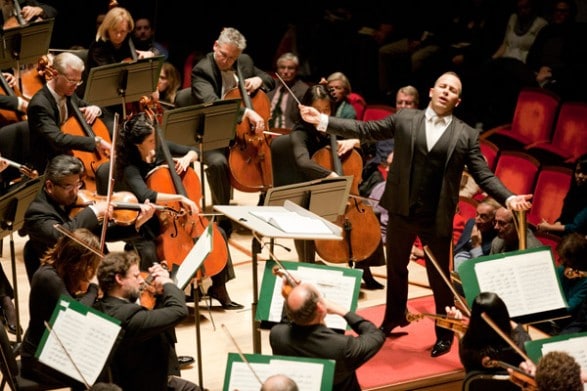Breaking: Life just got $55 million easier for Philadelphia Orchestra
mainAn orchestra which has lived for years under fear of insolvency has just been given a new lease of life.
Press statement:
Silicon Valley Community Foundation (SVCF) has made a $50 million gift to the endowment of The Philadelphia Orchestra Association. The gift came from a donor-advised fund at SVCF and represents an expression of confidence in the artistic and organizational leadership of the Orchestra by individuals who have chosen to remain anonymous. Additionally, SVCF has awarded $5 million from the same donor-advised fund to support current and future Orchestra operations. The total grant of $55 million is the single largest gift in Philadelphia Orchestra history.
“This exemplary act of generosity is overwhelming,” said Richard B. Worley, chairman of the Board of Directors. “The impact of this gift will be felt for generations. I know it will also serve as an inspiration and invitation to others to strengthen the Orchestra for the future. The donors have my deepest respect and admiration. I could not be more grateful.”
“This profoundly meaningful gift is testament to the unique place of Yannick and The Philadelphia Orchestra on both the world stage and in the richly varied communities of Philadelphia,” said President and CEO Matías Tarnopolsky. “This extraordinary act of support recognizes our readiness to write The Philadelphia Orchestra’s next chapter and sets us on a path to achieve artistic goals, create an expansive future for classical music, and further the place of the arts in an open and democratic society.”
“This is an amazing and deeply moving moment for me and for all of us in the Philadelphia Orchestra family,” said Music Director Yannick Nézet-Séguin. “In all that we do, the musicians of the Orchestra and I seek to create joy through music. With this tremendous support, we look forward to sharing that joy widely and in new, groundbreaking ways in the communities of Philadelphia, across the country, and around the world. Words are simply not enough to express my heartfelt gratitude.”
There is no clue who the donors might be.






Comments